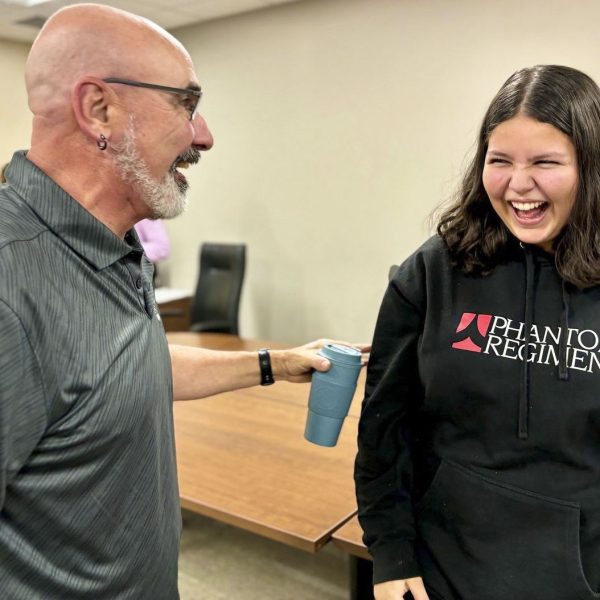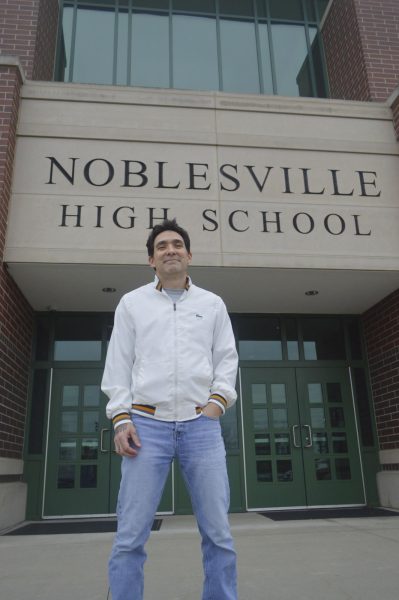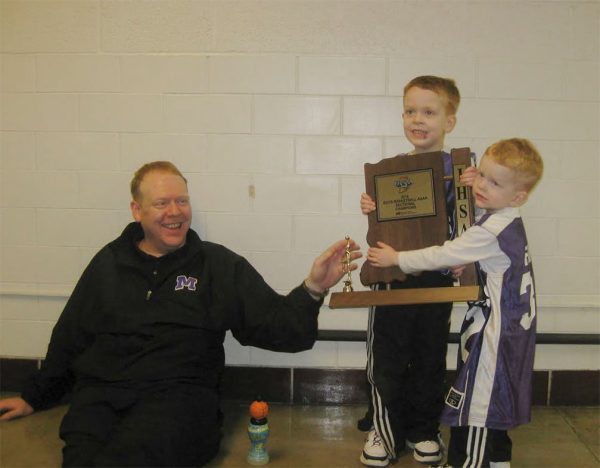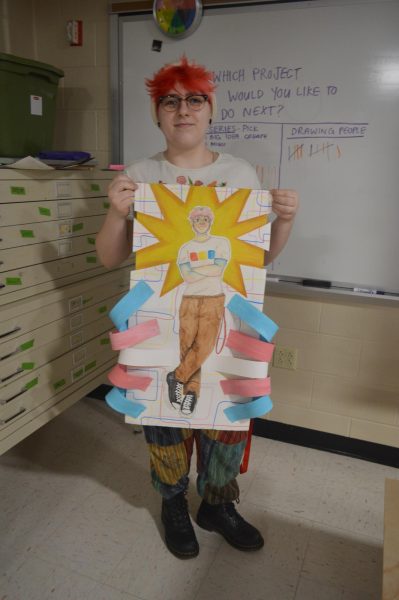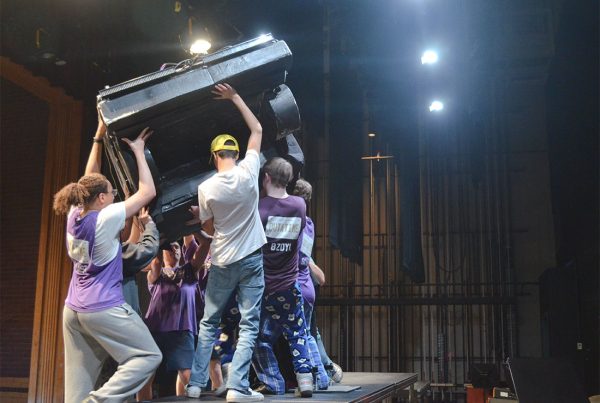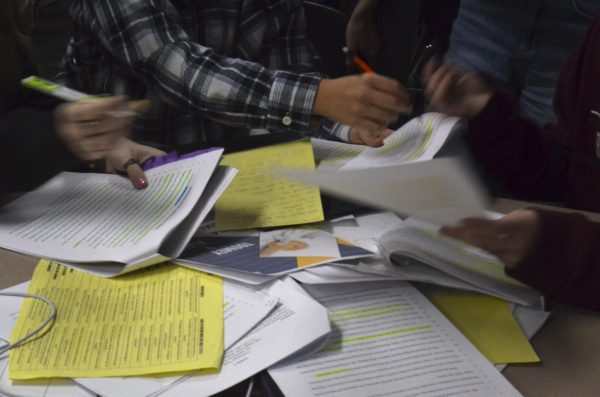200,000
El Salvadoran refugees in the United States will be forced to leave
March 8, 2018
When a conflict, even an especially nasty one, is far away from you, it’s easy to distance yourself from it. When thousands of people die—but it’s far away—you can pretend it’s not really happening. You can push it off and say, “It’s not happening to me, so I don’t need to worry about it.”
200,000 people will be forced to leave the United States to return to El Salvador, a country which has been left in ruin as a result of a particularly horrible civil war. The country is violence ridden and filled with gangs.
If it seems far away, we think we can disregard the situation.
But, how much longer will we choose to ignore it when it’s happening right here?
At 14 years old, NHS junior Giovanni Guillen-Melgar came to America from Spain on his own. Through his school, guillen-Melgar found an opportunity to receive his visa and continue his schooling in America. But, he faced more challenges that he was expecting.
“It was hard for me because I learned English, but not that much… I didn’t have friends and then I was trying to make friends. I did speak English, but [other students] couldn’t understand me. It’s really hard for other people to come from other countries and learn the language,” Guillen-Melgar admits.
In one of the Trump administration’s most recent reversals of previous immigration policies, nearly 200,000 El Salvadorans were mandated to return to a home they have not known for years — and for children of these immigrants, they will be a stranger in a land that is not their own.
After a series of earthquakes in 2001, El Salvador was left in ruins. As a result, thousands of El Salvadorans sought refuge in the United States. The temporary citizen status of El Salvadorans has been renewed several times since 2001; however, the Department of Homeland Security, under the Trump Administration, has determined that the condition of El Salvador has improved enough for the refugees to return.
Although the infrastructure of El Salvador has arguably improved since 2001, the country is still in a state of violence and disarray from a civil war in the 1980s that the United States played a role in maintaining. The war started as a result of the gross inequality between the majority of the country and the wealthy, ruling class elite, according to BBC News.
According to The Nation, the United States “pitted a right-wing government against Marxist guerrillas.” The United States provided military and economic aid to back the government of El Salvador. Additionally, the United Nations Truth Commission established in a report that “more than 85 percent of the killings, kidnappings, and torture had been the work of government forces, which included paramilitaries, death squads, and army units trained by the United States.” The White House and State Department even worked to cover up these atrocities.
The United States has yet to make adequate reparations to the people of El Salvador. The people who once sought refuge in this country now feel betrayed and terrified of the near future. A land of opportunity is now a land which is rejecting them, even in their time of need. They came to have a better life, but will be forced to return to a place they may not recognize anymore. Families will be torn apart. Lives will be changed.
English as a New Language teacher Krysten Plahm recognizes this struggle to communicate.
“My students have taught me patience. I constantly put myself in their shoes as I watch them struggle at times through the English Language,” Plahm said. “It is the biggest mountain for them to climb in order to reach Fluent English Proficiency, but they are patient with that climb. To watch them struggle though is a beautiful thing to witness because when they reach the top of that mountain–the victory is an everlasting memory for me.”
According to Plahm, without communication the world would never grow and thrive.
““It is a beautiful moment when I can watch my students who knew [limited English] to being able to communicate effectively … with little to no support from others,” Plahm said.
Guillen-Melgar lives with extended family here. If his family ends up leaving the country, he will be left alone. Guillen-Melgar is left with the decision to either return to his mother’s country, or remain in the United States to further his education.
“I don’t want that. I want to be with my family. They’re trying to go back to El Salvador because they can’t be here. They only have 18 months. They don’t want me to be here by myself. They want me to go with them,” he said.
Last time he visited El Salvador, Guillen-Melgar was disturbed by the state of the country.
“Right now, there is more violence than before [in El Salvador],” he said. “You can’t be hanging out with your friends over there because they’re scared that they’re going to get killed by the people from the gangs. There’s more families that have kids in school that are afraid to go back because they know that they’re going to get killed [by] those people.”
Plahm is aware of the conflict in El Salvador and how it will affect some of her students.
“It breaks my heart to see that our political system acting on these policies,” Plahm said. “I carry [my students] emotional load everyday after school. They are constantly on my mind, and I am always thinking of a plan that can better help their future. The ultimate goal for all of my students is to graduate. If there are obstacles beyond our control politically, I will find a way to create control in order for them to reach the goal of graduation.”
The United States has failed to treat its immigrants with the respect they deserve, according to Plahm.
“Our society is not taking the time to get to know, in some cases innocent, people who can better help our world. I constantly tell my students that being bilingual is a blessing,” Plahm said. “Our society needs to start viewing our immigrants as a blessing as well.”
Guillen-Melgar carries the weight that upon his family’s return to El Salvador, the risk of losing everything is very real.
“They moved from El Salvador to this country to get a better life. They know that this country is safe for them. It’s not just my family,” Guillen-Melgar said. “It’s not just me.”







